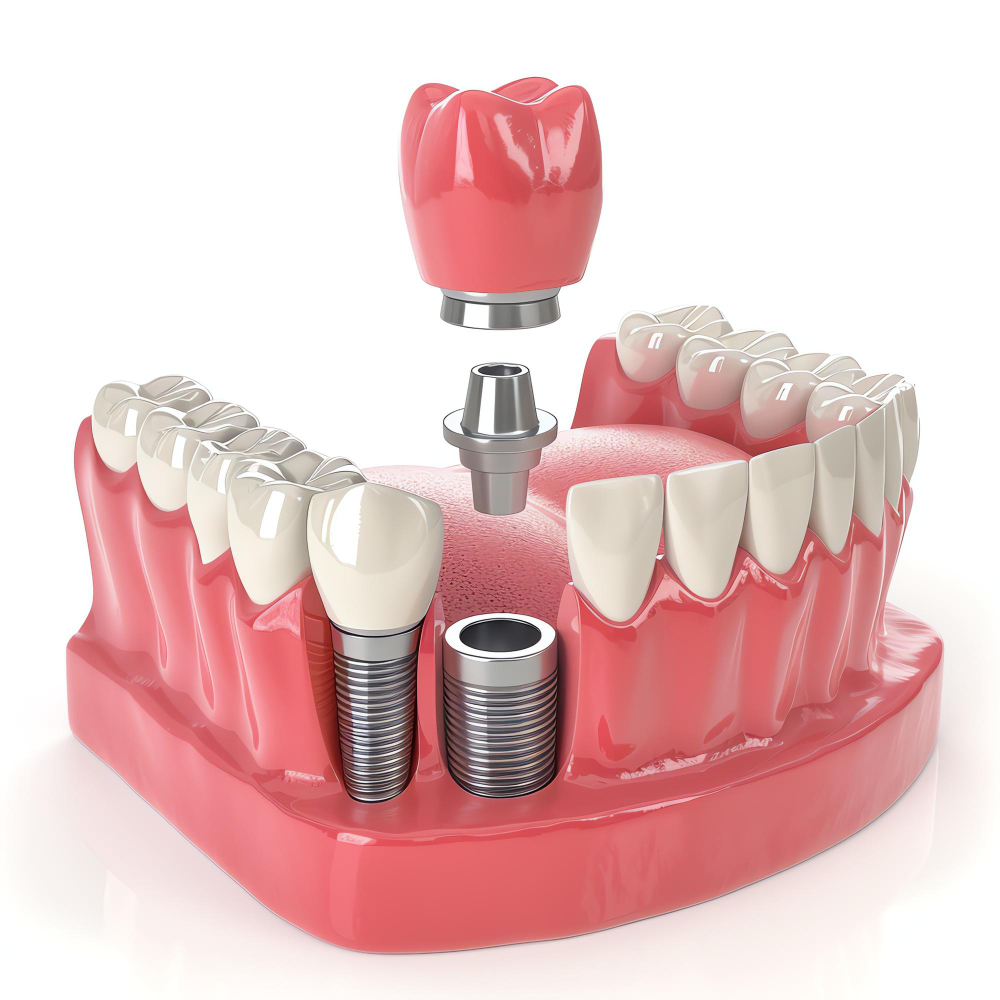Dental Implants

Dental implants offer a durable and natural-looking solution for replacing missing teeth, restoring both functionality and aesthetics.
Understanding Dental Implants: Dental implants are titanium posts surgically placed into the jawbone to serve as artificial tooth roots, providing a stable foundation for replacement teeth.
Procedure:
- Consultation: The dentist evaluates the patient’s oral health and discusses treatment options, including dental implants.
- Surgical Placement: During a minor surgical procedure, the implant is placed into the jawbone, where it integrates with the surrounding bone over time.
- Healing Period: A healing period of several months allows the implant to fuse with the jawbone, ensuring stability and durability.
- Abutment Placement: Once the implant has integrated, an abutment is attached to the implant, protruding above the gumline.
- Prosthetic Attachment: A custom-made dental crown, bridge, or denture is attached to the abutment, completing the restoration.
Benefits of Dental Implants:
- Permanent Solution: Dental implants offer a long-term solution for tooth replacement, often lasting a lifetime with proper care.
- Natural Appearance: Implants look and feel like natural teeth, enhancing smile aesthetics and boosting confidence.
- Improved Functionality: Implants restore biting and chewing function, allowing patients to enjoy their favorite foods without restrictions.
- Preservation of Jawbone: Implants stimulate the jawbone, preventing bone loss and preserving facial structure.
Candidates for Dental Implants:
- Good Oral Health: Candidates should have healthy gums and sufficient jawbone density to support the implant.
- Non-Smokers: Smoking can impair healing and increase the risk of implant failure.
- Commitment to Oral Hygiene: Patients must be committed to maintaining good oral hygiene to ensure the success of the implant.
Aftercare:
- Regular Dental Visits: Routine check-ups allow the dentist to monitor the implant’s condition and overall oral health.
- Maintain Oral Hygiene: Brushing, flossing, and using antimicrobial mouthwash help prevent complications and prolong the life of the implant.
- Avoid Habits: Patients should avoid habits such as smoking and chewing on hard objects, which can compromise the implant’s success.
